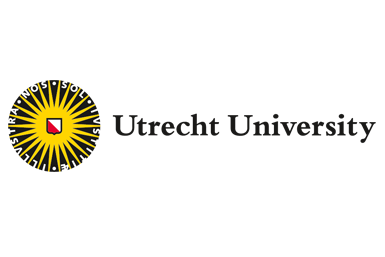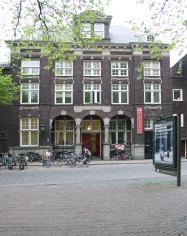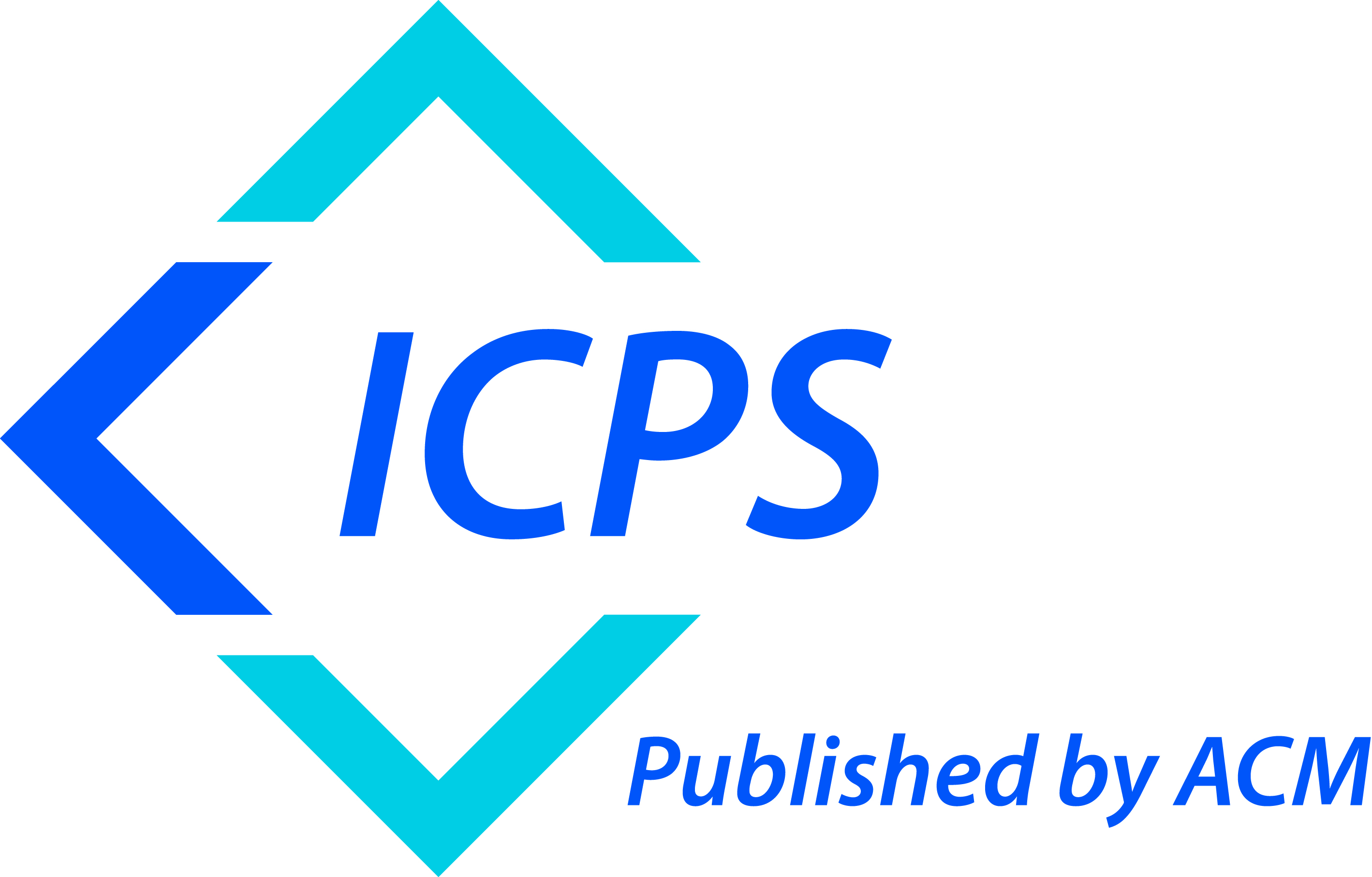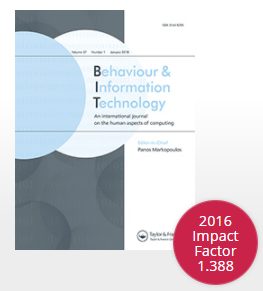ECCE 2018 - European Conference on Cognitive Ergonomics
With As Special Theme: Modeling, Simulation and Games
With As Special Theme: Modeling, Simulation and Games
ECCE 2018 is the 30th annual conference of the European Association of Cognitive Ergonomics (EACE). This leading conference in human-media interaction and cognitive engineering provides an opportunity for both researchers and practitioners to exchange new ideas and practical experiences from a variety of domains.
The role of digital technologies in our life has dramatically changed in the last decades, and the scope of cognitive ergonomics has extended accordingly. While industrial applications and systems remain an essential object of analysis and design, an increasingly important focus is on how digital model and game-based technologies become a part of our everyday environments and practices. Therefore, we have chosen for Modeling, Simulation and Games as ECCE 2018’s special theme, addressing questions such as:
ECCE 2018 seeks to encourage dialogue and discussion among participants about general topics as well as this year’s special theme. We invite various types of contributions from researchers and practitioners - long and short papers - which address the broad spectrum of cognitive ergonomics challenges in the analysis, design, and evaluation of digital technologies.
General Chairs: Egon L. van den Broek (vandenbroek<&>acm.org) and Herre van Oostendorp (H.vanOostendorp<&>uu.nl)
Programme Chairs:: Christian Stary (Christian.Stary<&>iku.at) and Françoise Détienne (francoise.detienne<&>telecom-paristech.fr)

 Instituto Cervantes (Utrecht City Centre)
Instituto Cervantes (Utrecht City Centre)



Payment system now active
All event packages include:
SIGCHI student members (or interested in becoming members) who are postgraduate students from, and currently based in, developing countries are eligible to apply to the SIGCHI Gary Marsden Student Development Fund (that may cover a maximum of $2500 USD, including travel (economy class flight tickets, ground transportation), accommodation (student housing if available), and meals during the conference can be covered by reimbursement), if they have an accepted contribution, or volunteering of any kind (such as student volunteer) for the conference.
*This is the regular fee for the European Association of Cognitive Ergonomics (EACE) for the year 2018.
**This is the regular fee for the European Association of Cognitive Ergonomics (EACE) for PhD students for the year 2018.
***As an alternative to a yearly fee, a full member can also choose to pay for a five-year membership, which fee is equal to four times the regular fee.
****EACE members who have reached the official retirement age can choose a life-time membership. In this case, you pay the fee that equals to four years but you remain a member of the Association for the rest of your life.
We seek contributions relevant to the broad spectrum of cognitive ergonomics challenges in the analysis, design, and evaluation of digital technologies. In particular, work related to the special theme Modeling, Simulation and Games, is invited. This includes, but is not limited to, the following topics:
All submissions should be written in USA English and authors should anonymize their papers. All submissions fulfilling the submission requirements will be peer-reviewed, and accepted papers will be published in the conference proceedings, which will be made available in the ACM digital library, the most comprehensive collection of full-text articles and bibliographic records covering the fields of computing and information technology.
Please note that ACM has developed a new webpage, which contains the new proceedings templates: http://www.acm.org/publications/article-templates/proceedings-template.html/. If you have any problems with the templates, please contact ACM's TeX support team at Aptara: acmtexsupport@aptaracorp.com. ACM provides several templates to format articles. For this conference, please use the SIGCHI proceedings template only. After your submission is accepted, please submit:
All submissions should be made through the EasyChair Reviewing System.
The size of long papers can be maximally 8 pages, including all sections, references, and possible appendices. The size of short papers can be maximally 4 pages, including all sections, references, and possible appendices. The papers should be submitted to EasyChair in PDF-format. The submission deadline is March 16, 2018, 5 PM (CET).
The authors of the best 4 or 5 long papers will be invited to transform their paper into a paper suited for the leading journal Behaviour & Information Technology (BIT). At the same time these authors are also asked:
Anton Nijholt received his PhD in computer science from the Vrije Universiteit in Amsterdam. He held positions at various universities, inside and outside the Netherlands. In 1989 he was appointed full professor at the University of Twente in the Netherlands. At this moment he is emeritus professor. His main research interests are human-computer interaction with a focus on entertainment computing, affect, humor and brain-computer interfacing. He edited various books, most recently on playful interfaces and brain-computer interaction (BCI). He is Co-editor of the Handbook on BCI that will appear (Taylor & Francis) in 2018 and Editor of some books on Playful User Interfaces and on Playable Cities. Nijholt, together with many of the more than fifty PhD students he has supervised, wrote hundreds of conference papers on these topics and acted as program chair and general chair of large international conferences on affective computing (ACII), intelligent virtual agents (IVA), multimodal interaction (ICMI), advances in computer entertainment (ACE), entertainment computing (ICEC), et cetera. Nijholt is Chief Editor of the section Human-Media Interaction in the journal Frontiers in Psychology and editor of the Springer Book series Gaming Media and Social Effects.
Humor is important in our daily life, whether it is at home, at work, or in public spaces. Smart technology is increasingly becoming part of our daily life. Can smart technology, sensors and actuators, not only be used to introduce smartness in our environments, but also to support humor? There have been promises of computational humor but so far understanding of humor escapes any algorithmic approach. Nevertheless, knowledge of humor is available and this knowledge is increasing. First philosophers, then psychologists, then linguists and sometimes artificial intelligence researchers made humor topic of their research. In this talk we want to argue that humor will become part of human-computer interaction and affective computing research. We mention some relevant humor theories and discuss intentional and unintentional humor as they can appear in various smart media and environments. One of the conclusions that will be drawn is that rather than having smart technology that creates humor, we can aim at technology that cooperates with us in creating humorous situations and events.
Peter Werkhoven is Corporate Science Director at TNO, the Netherlands Organisation for Applied Scientific Research. He also holds a position (in part time) as professor Multimodal Interaction in Virtual Environments at Utrecht University. He was (co-)initiator of national research programs MultimediaN, GATE (Game Research for Training & Entertainment) and the Center for Advanced Gaming & Simulation. Since the nineties he studied perception, manipulation and navigation in virtual reality (VR), and applied the findings in the domains of virtual prototyping and training applications. His later research focused on the skin as an information channel (tactile suits), on multisensory integration, on navigating VR by thought (brain machine interfaces), on digital games as a stressor, on presence and body ownership in augmented reality, and on urban games.
Interaction technologies and design methods for the interaction between humans and computer systems are moving into a new era. In the last decades HCI focus moved from ‘calculators’ and ‘multimedia’ artifacts, to virtual and augmented realities (‘experience machines’) for supporting humans with learning, entertaining, designing, and (tele)-operations. And with the recently emerging high levels of artificial intelligence we are facing challenges in what we call man-machine teaming, trying to understand what tasks and activities can be left to humans, machines, or ‘human-in-the loop’ combinations. Gradually, however, intelligent systems (vehicles, weapons, medical devices, robots) become more autonomous, moving humans to ‘the outer loop’ or leaving humans completely ‘out-of-the loop’, but not yet able to deal well with failures and unexpected situations. Providing procedures for all possible failures and situations is not an option because the state-action space would explode. Systems should therefore become self-aware (self-assessment, self-management) dealing with unexpected situations in operation. In order to keep control humans come into a new role of providing autonomous systems with goal functions (including rules, norms, constraints and moral values), stating the utility of every possible outcome of actions of the autonomous system. This may enable these systems to explain themselves better (explanations that humans can understand). A challenge for the community of cognitive ergonomics?
Ebba Thora Hvannberg is a professor of Computer Science, School of Engineering and Natural Sciences, University of Iceland. Dr. Hvannberg has a B.S. in Computer Science from University of Iceland, and an M.S. and a Ph.D. from Rensselaer Polytechnic Institute, New York. Her research areas include human computer interaction and software engineering. The main focus of her research has been on methods for usability evaluation. She has participated in several international projects on advanced multimedia services to residential users, software process improvement, technology enhanced learning, air traffic control, usability evaluations, and simulators for crisis management training.
In many domains, applications have a lifetime of many years, but evolve with different technologies, changing requirements and user behaviour. To learn how systems evolve over time, it is important to understand what stimulates changes. There can be factors in the world external to a software system, e.g. human, organizational and technological factors, and there can be factors internal to a software system, i.e. its structure and complexities that do not have an effect on its usage, but its further development. The term evolvable is borrowed from a specific research area “Evolvable Systems”, which investigates the application of biologically inspired concepts to implement adaptive hardware. In the area of biological systems scientists study the concept of robustness and wonder whether it is in conflict with the demands of natural evolution, and thus innovation. An analogy can be drawn with human computer interactions, where users demand robustness and systems which conform to their habits, but yet desire some innovations. This is for example manifested in users’ requirements to keep consistent user interfaces, but yet they demand that user interfaces excite them with new looks and experiences every so often. Training has taken place with the aid of simulators for decades and have evolved in different directions. There are varying triggers for changes, and actions in response to these triggers. Naturally, as training simulators develop, their usability and usefulness are a subject of study. In order to address these, several topics have been explored, e.g. fidelity of feedback, misrepresentation between simulators and reality, fitness to practice and transfer of methodological knowledge. The talk will explore how these topics can contribute to the understanding of evolution of simulators where robustness and innovation may polarize.
vandenbroek<&>acm.org
H.vanOostendorp<&>uu.nl
Christian.Stary<&>iku.at
francoise.detienne<&>telecom-paristech.fr
C.vanNimwegen<&>uu.nl
Elly.Lammers<&>vu.nl
C.Ferguson<&>uu.nl
Registration, coffee
OPENING by conference chairs and Prof.dr. Johan Jeuring, Head of Department of Information & Computing Sciences, Utrecht University
Invited speaker Prof.dr. Peter Werkhoven, Utrecht University & TNO: Telling Autonomous Systems What to Do.
Coffee Break
CA Case Study on Supporting Teachers’ Collective Reflection in Higher Education. Anke Dittmar and Peter Forbrig
Designing Digital Interactive Instructions for Children’s Construction Play. Asbjørn Lodahl Christensen and Michael Mose Biskjaer
Scaffolding RAMI4.0-Exploration as Design Support. Claudia Kaar, Josef Frysak and Christian Stary
Lunch Break
Where2: Exploring Prior Visitor Journeys to Enrich Upcoming Visitor’s Experience. Ana Caraban, Sara Tranquada, Stephanie Liao, Johannes Schöning and Greicy Ks
CreaSenses: Fostering Creativity through Olfactory Cues. Frederica Gonçalves, Diogo Cabral and Pedro Campos
Platform for Evaluation of Readers' Implicit Feedback Using Eye-Tracking. Miroslav Zivkovic, Egon L. van den Broek and Frans van der Sluis
Coffee Break
Interactive Narratives for Profiling Ethics Orientation. Carlos Santos, Vassilis-Javed Khan and Panos Markopoulos
Public Opinion about Self-Driving Vehicles in the Netherlands. Arulanandam Jude Niranjan and Geert de Haan
Using a mixed-methods assessment approach in a gaming-simulation environment to increase resilience. Peter Berggren, Joeri van Laere and Björn J E Johansson
Social Event (Boat Trip) & Dinner (Stadskasteel Oudaen)
Invited speaker Prof.dr. Anton Nijholt, University of Twente: From Word Play to World Play. Introducing Humor in Human-Computer Interaction
Coffee Break
Mild Place Illusion: A Virtual Reality Factor to spark Creativity in Writing. Frederica Gonçalves and Pedro Campos
Mobile Screen Size Limits Multimodal Synergy. Frans van der Sluis, Egon L. van den Broek, Annemiek van Drunen and John G. Beerends
Subliminal in the wild: Exploring the Feasibility of Subliminal Priming on Web-platforms. Ana Caraban, Evangelos Karapanos, Daniel Gonçalves and Pedro Campos
EACE Meeting - Open to all attendees.
Lunch Break
A Role-Playing Simulation to Support Assessment of Sustainable Sociotechnical Systems for and by Citizens. Chloé Le Bail, Françoise Détienne and Michael Baker
Cognitive Work Analysis and Conceptual Designing for Unmanned Air Traffic Management in Cities. Jonas Lundberg, Carl Westin, Mattias Arvola, Stefan Holmlid and Billy Josefsson
Supporting End-User Understanding of Classification Errors. Emma Beauxis-Aussalet, Joost van Doorn and Lynda Hardman
Coffee Break
The Users' Time Perception: The effect of Various Animation Speeds on Loading Screens. Ulrik Söderström, Martin Bååth and Thomas Mejtoft
The Effect of Skeleton Screens: Users' Perception of Speed and Ease of Navigation. Thomas Mejtoft, Arvid Långström and Ulrik Söderström
Invited EACE panel “Selling Cognitive Ergonomics - How Broad Should Our Shop Window Be?” organized by Dianne Murray and Gerrit van der Veer
Panelists
Invited speaker Prof.dr. Ebba Hvannberg, University of Iceland: Drivers of Evolution of Training Simulators
Coffee Break
A Heuristic for Relative Perception Accuracy and Reaction Time Estimation for Monitoring HMI Designs. Marie-Christin Harre and Sebastian Feuerstack
Using Sound Feedback to Help Blind People Navigate. Assaf Botzer, Nir Shvalb and Boaz Ben-Moshe
A Trigger-substrate Model for Smiling during an Automated Formative Self-assessment Quiz: Engagement is the Substrate, not Frustration. Harry Witchel, Harry Claxton, Daisy Holmes, Thomas Ranji, Joe Chalkley, Carlos Santos, Carina Westling, Michel Valstar, Matt Celuszak and Patrick Fagan
Feedback on the Semantic Relevance of Search Queries. Herre van Oostendorp, Tijs Ditvoorst and Justin van Doorn
How to evaluate emotional experiences in television drama series: Improving viewer evaluations by psychophysiological measurements and self-reports. Lene Heiselberg and Thomas Bjørner
Ending and announcement of ECCE2019 meeting in Ulster University
Utrecht City Centre - Walking distance from Utrecht Central Station (10 minutes)
Utrecht is a municipality in the Netherlands, capital and most populous city of the province of Utrecht. It is located in the eastern corner of the Randstad conurbation and is the fourth largest city in the Netherlands with a population of 345,080 in 2017.
Utrecht is the heart of the Netherlands, a city full of vitality. The historical city center is small enough to explore on foot but large enough to enjoy world class festivals, modern architecture, trendy shops and interesting museums for days on end. Check the official visit Utrecht website (www.visit-utrecht.com) for the upcoming events, things to do, restaurants and more.
Utrecht's ancient city centre features many buildings and structures several dating as far back as the High Middle Ages. It has been the religious centre of the Netherlands since the 8th century. It lost the status of prince-bishopric but remains the main religious centre in the country. Utrecht was the most important city in the Netherlands until the Dutch Golden Age, when it was surpassed by Amsterdam as the country's cultural centre and most populous city.
Utrecht is host to Utrecht University, the largest university in the Netherlands, as well as several other institutions of higher education. Due to its central position within the country, it is an important transport hub for both rail and road transport. It has the second highest number of cultural events in the Netherlands, after Amsterdam. In 2012, Lonely Planet included Utrecht in the top 10 of the world’s unsung places.
Direct train: Schiphol Amsterdam Airport – Utrecht - € 8.70 (one-way) - 4x per hour - 30 minutes
Also direct trains from Rotterdam, The Hague, and Eindhoven Airport.
€3.00 (1 trip) - €6.00 (1-day) - € 11.50 (3-days)
Many buses (e.g. 2 and 28) from the Central Railway Station stop at “Janskerkhof”. From there it is a 4 min. walk to the conference building.
Often expensive in the Netherlands (costs ca € 100 – 120)
This collection of unique, small-scale hotels with their own conceptual identity offers four different hotels, all located in the city center, close to the conference venue: